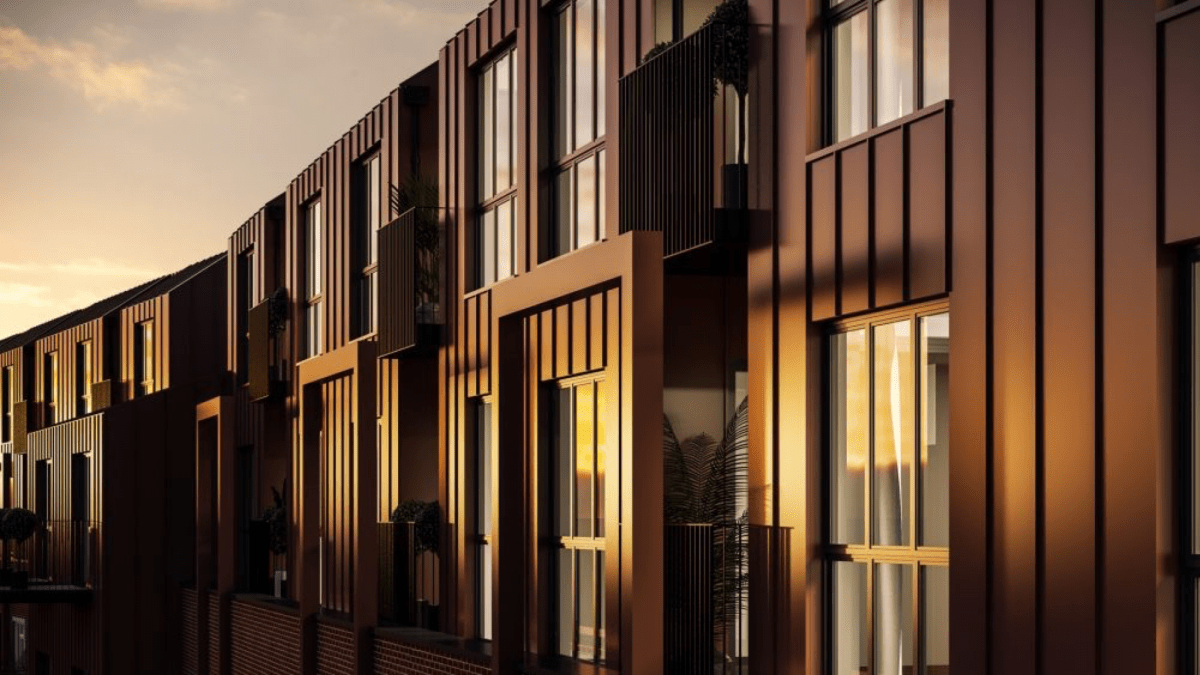
Noticing that the building sat one storey lower than its neighbours, Arshad decided to build an apartment on the roof. The apartment was manufactured offsite and installed on-site in just 24 hours, subsequently selling for £1.3m and generating a healthy 35% margin.
Having previously created a business that provides temporary accommodation to hundreds of homeless families across London, Arshad was all too aware of the pressing need for more affordable homes in the capital and across the UK. Converting unused rooftops into homes not only addressed the challenge of sourcing land, it is inherently low carbon and sustainable. The company commissioned research that showed the potential for 180,000 new airspace homes worth approximately £54 billion in London alone.
Championing the concept with local and central Government was essential in unlocking novel funding facilities and policies needed to turn the idea into a reality. In July 2020, Parliament approved the inclusion of airspace within permitted development rights, embracing the notion that we should build up, not out.
This would not have been possible without equity investment. Arshad identified early-on that establishing such a significant asset class would need permanent capital behind it. BGF saw potential and invested £6.3m in 2018, following on with a further £3.0m in 2019.
We spoke to Arshad about his experience of setting up Apex Airspace, shaking up the real estate industry and securing investment.
Tell us about your “lightbulb” moment, when you first realised the potential of airspace development?
I remember walking through the streets of East London after having dinner with friends. As we strolled, I looked up to the roofline and noticed that on one side, the terraced building was a storey lower than on the other side. I realised then that the idea was not just a one-off with my office in Camden but, in fact, could be applied at scale and had the potential to create a substantial number of new homes. I thought of the value that could be delivered to the owners of these buildings and decided the idea had to be pursued.
What has been the greatest challenge in establishing the business and how have you overcome it?
I knew that it would be complex and that it would take time and endurance, but I didn't fully appreciate the power of the “status quo”. Real estate is one of the oldest and most established industries. The practices and approaches used are deeply embedded. Introducing the idea of utilising rooftops, instead of land, and offsite modular manufacture, in place of on-site construction, regardless of the strength of argument, represented a substantial shift in mindset. It took a lot of time and effort to encourage industry professionals to think outside of usual practice and warm up to the idea.
I think self-belief and perseverance are the biggest assets for any entrepreneur, because by the nature of entrepreneurialism, you are doing something untested and uncertainty draws doubt and nervousness.
The situation was no different for me – I had to back myself and my team to prove the concept before others would accept and back it.
At what point did you decide the business needed equity investment?
After we commissioned research into the market potential, beyond the office in Camden and that street in East London, which showed the potential to build 180,000 new homes across London, we decided it was time to raise capital and build the capability needed to make the asset class a reality. I knew that long term, permanent capital was the right approach initially.
What was your experience of raising equity investment?
In the beginning, it was hit and miss. It was the first time I had raised external equity investment and so it was difficult to get access to the right advisers and investors. I could tell our story to policy makers, peers and the media in a way that resonated and generated advocacy, but doing the same for investors was more challenging. Capitalex helped us to express our story in the language used by investors.
What advice would you give to other founders that are considering raising equity funding?
It is a major undertaking and you will need a lot of inner strength, patience and stamina. Don’t be put off by tough questions or challenge – investors are looking for risks and understanding these ultimately puts you in a stronger position going forward. Having conviction in your business and your idea is crucial, and will make the sacrifices you make worthwhile.
How has equity investment enabled you to grow the business?
Raising equity meant that we had in place permanent capital to invest in the team, technology, frameworks and processes needed to make the concept a reality. We have assembled an experienced team and worked hard to build a pipeline of over 2,000 homes. Our first schemes comprising 34 homes have progressed to the build phase and we’re gearing up for our first 100+ home scheme.
What’s next for Apex Airspace?
We are on a mission to unlock the potential of the airspace asset class, creating homes for everyone in an environmentally sustainable way that enhances quality of living and standards of safety for everyone in the development. We are facing both an environmental crisis and a housing crisis – by maximising the value and utilisation of existing real estate assets, we can help to address both.